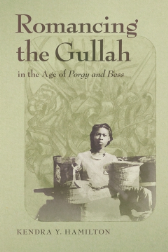Pc Meets Egypt: Riots and Revolts

April 7, 2011
Occasionally, history is not something that we study in a textbook, but rather something that we experience as it happens. Our generation has certainly seen our fair share of “history in the making.” However, a couple of months ago, as the people of Egypt gathered in all senses of the word to demand the fall of (then) President Hosni Mubarak’s regime, some of PC’s own students were in the middle of the revolution’s developments. Taylor Warner and Jessica Shamoon had just recently arrived in Cairo to begin their semester of study at American University in Cairo when the riots and revolts began.
Despite a stressful time of adjusting her travel plans and settling in her new place of study for the semester, Jessica was kind enough to respond to some of my questions about her time in Cairo through e-mail correspondence. Her personal accounts of what she saw and experienced during part of the Egyptian revolution offer a unique perspective of the events that were so closely watched by many of the people of the world.
Jessica arrived in Cairo on January 20th, several days before the citizens of Egypt would grab the world’s attention by their eventually successful attempts to overturn Mubarak’s presidency. Her academic plans for the semester included an Arabic class and some courses in political science. However, before the semester gained much momentum, riots began to break out, often interrupting normal life for everyone in the Cairo area.
Jessica and her friends first heard of escalating riots on January 25th while they visited Khan el Khalili, a large marketplace in a section of the city known as Old Cairo. Unable to reach her dorm in Zamalek (downtown), she and her friends were transported to the school’s main campus in the New Cairo section of the city under the protection of an armed police officer. Eventually, restrictions eased enough to allow Jessica to return to her dorm and proceed with normal activities, unaffected by the riots of the day.
Riots continued into the next day, but Jessica and her friends didn’t witness any of the protests on this day. Internet connection was dramatically slowed and occasionally cut off altogether as many people in the area attempted to both access and provide information about the developments of the protests.
According to Jessica, Thursday, January 27th “was relatively quiet,” as protestors planned and prepared for the events of the next day. A strict evening curfew was announced on Friday and “all phone lines were down” by the end of the day. Jessica and her friends purchased plenty of food to ensure that they would have enough in case they became stranded. She describes the emotional atmosphere of the city as palpably “tense . . . before noon prayer.” The scene that she next describes seems like one straight out of a historical documentary, as Egyptians, finished with noon prayer, “marched down the road singing the Egyptian national anthem [and] waving banners.” Once the riots began, Jessica and her friends watched as teargas and rocks were used by the police and civilians, respectively. A nearby mosque was used as a literal sanctuary for protestors and onlookers. Jessica says, “The protestors were lighting tires on fire and rolling them down the street . . . They lit a hummer on fire.”
As the protests continued deep into the night, CNN was their main source of regional news because “all the Egyptian news sources were blocked.” As CNN aired Mubarak’s refusal to step down as President, it seemed that the riots and protests would continue.
Though cell phone reception improved the next day, that night was the time that Jessica felt the most “worried and a little uneasy.” Despite many instances of looting, Jessica saw little evidence of police protection around her area during that night.
As the riots did not begin to subside by Sunday, the 30th of January, as was indicated to Jessica and her friends, she faced the difficult decision of whether to stay in Cairo and face the area’s unpredictable immediate future, or to leave in order to avoid possibly more violent developments. The deciding factor was her fear of being unable to leave the region should she stay and the violence escalates too much.
After a cold, stressful night of sleeping in an airport, Jessica flew to Barcelona, Spain, where she and fellow PC student, Taylor Warner, were able to visit several local attractions.
When asked if she would have chosen a different place to study if she had known what her short experience in Cairo would be like, Jessica is absolutely certain that she would have happily done it all again.
“Hands down it was the best experience of my life . . . I watched history in the making and experienced it as an Egyptian, not as an American watching it from outside,” she says, reflecting on her experience.
The time in Cairo was made even more memorable for Jessica because of a connection that she felt to her father, who lived in Egypt at one time and “attended high school in Maadi at the Cairo American College.” He used to tell her of “going up on the roof and watching bullets fly.”
Ultimately, Mubarak did resign from his office as President of Egypt on February 11 and Jessica has safely resumed her studies for this Semester in Florence, Italy at Firenze Arti Visive. Her classes include various art courses and an Italian Food and Culture course.




